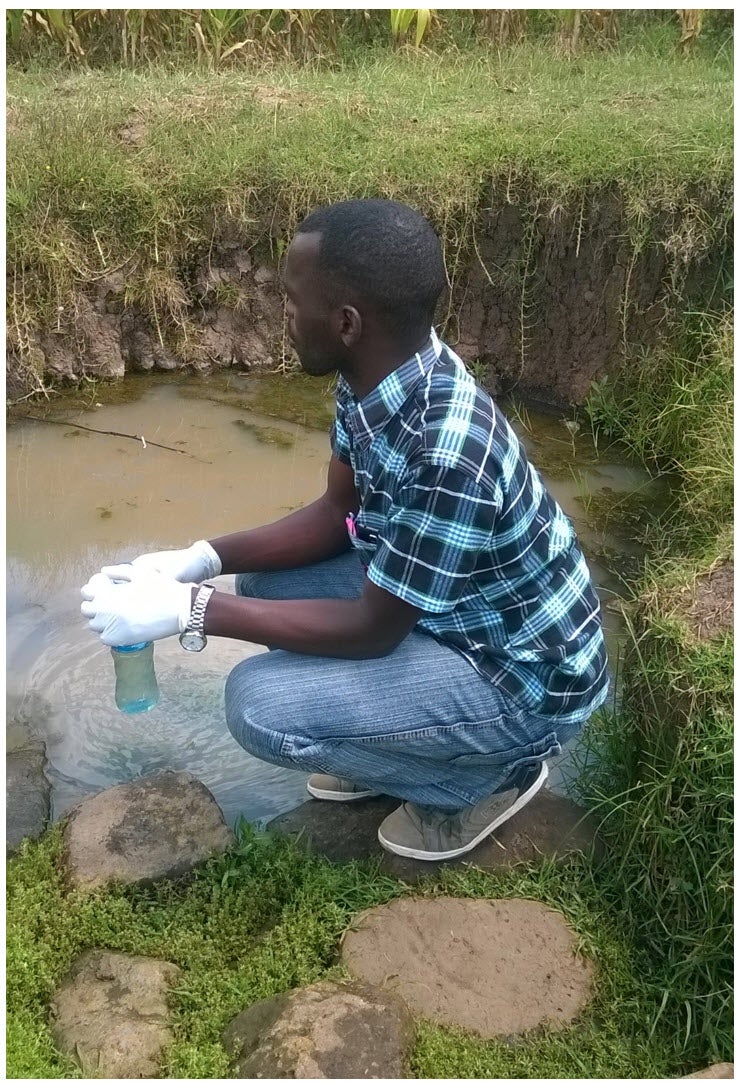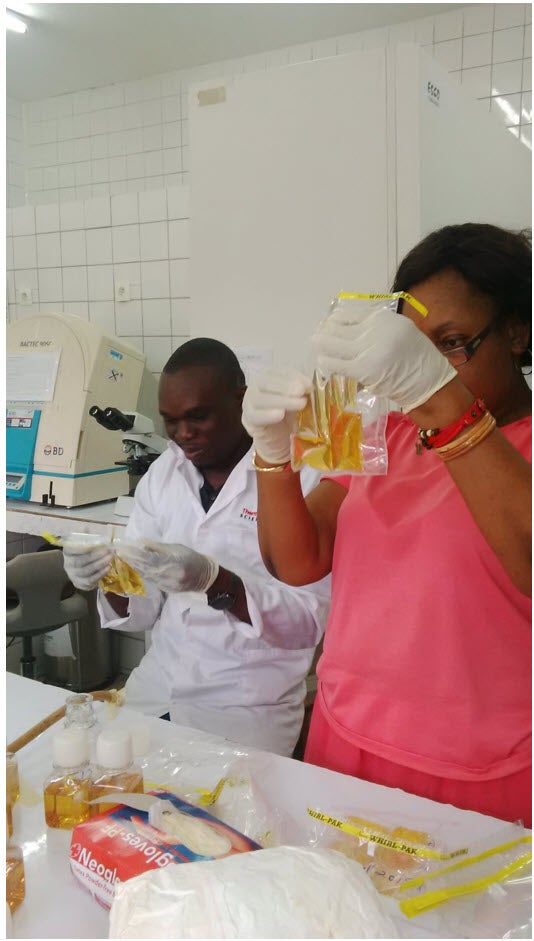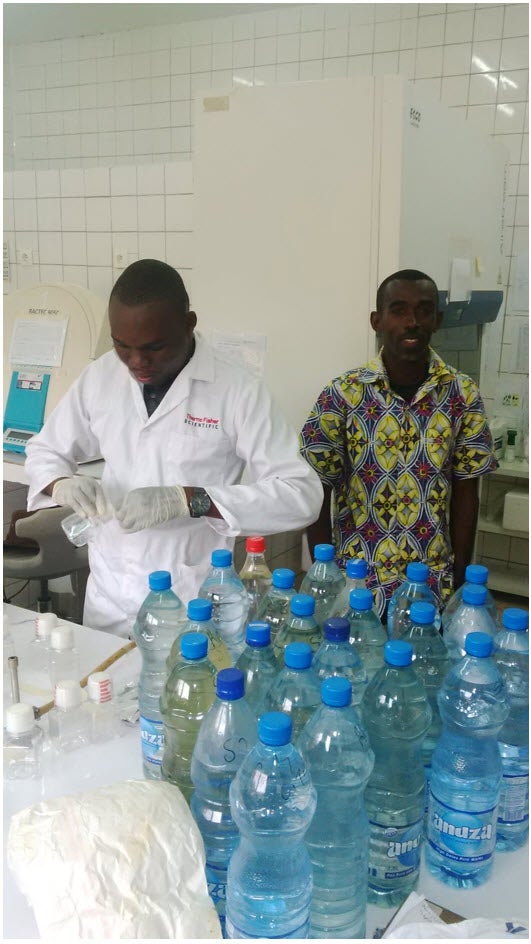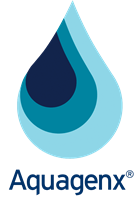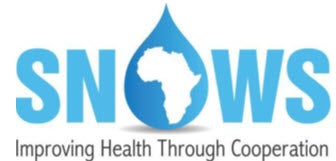
Scientists Networked for Outcomes from Water and Sanitation (SNOWS) is funded by the Wellcome Trust through its African Institutions Initiative. The aim of SNOWS is to build African capacity for interdisciplinary research in water supply, sanitation and environmental health, bringing together universities from across the continent, with research active universities in the North. The Consortium partners include Egerton University (Kenya), Kwame Nkruma University of Science & Technology (Ghana), London School of Hygiene & Tropical Medicine (United Kingdom), Mbarara University of Science and Technology (Uganda), Tshwane University of Technology (South Africa), University of Copenhagen (Denmark), University of East Anglia (United Kingdom), University of Gezira (Sudan) and University of Venda (South Africa).
Challenge
The University of Venda in South Africa (UniVen) was the lead investigator on a project to strengthen capacity and knowledge management to improve waterborne disease control in rural and peri-urban areas in South Africa, Gabon, Sudan, Ghana, Kenya and Uganda. The aim of the project was to assess drinking water quality in each of the countries and to use a bacteriological water quality test that was easy to use in the field in low resource areas. Individuals and partners involved with this project were:
| Country | University responsible for data collection and analysis | Country Team | Team leader in each country |
| South Africa | University of Venda (UniVen) | Prof N Potgieter Dr AN Traore Mr RL Mbedzi |
Prof N Potgieter |
| Gabon | University of Venda (UniVen) | Prof N Potgieter Dr AN Traore Mr RL Mbedzi |
Prof N Potgieter |
| South Africa | Tshwane University of Technology (TUT) | Dr MI Mokgobu Dr LS Mudau Mr TA Molaudzi |
Dr S Mudau |
| Ghana | Kwame Nkrumah University of Science and Technology (KNUST) | Dr HMK Essandoh Mr Amadu Salifu Mr Kofi Akodokwa Prof SN Odai |
Dr HMK Essandoh |
| Uganda | Mbarara University of Science and Technology (MUST) | Prof RO Apecu Mr L Ampaire Dr F Bagenda |
Dr Edgar Mulogo |
| Kenya | Egerton University | Dr JO Othira Mr RP Kirianki Dr Edward Muchiri |
Dr Edward Muchiri |
| Sudan | University of Gezira | Prof M Ahmed Prof EB Eltigani Mr MAAE Jaafer |
Dr Eltigani E Bashier |
Solution
UniVen selected the Aquagenx CBT E. coli Kit to use in each country. Each country selected a specific site where 200 water points (100 household water containers and 100 water source points) were assessed using the CBT Most Probable Number (MPN) Kit. Proper training materials and instructions for use were supplied by Aquagenx. An MSc student from each country did the project for a dissertation. All partners sent two people to a workshop in South Africa (UniVen) for training.
A total of 500 mL samples of household drinking water and source water were collected (maximum sample number = 200) for testing using the CBT Kit. Conductivity, pH, temperature and dissolved oxygen measurements also were taken for each sample. The water samples were incubated overnight (18-28 hours) at 37°C or ambient temperature. All positive E. coli samples were stored at 4°C.
Diarrhoeagenic E. coli prevalence was determined according to the published protocol of Kousar and Barnard (2014).
Test Results
MPN test results currently are being published for each country as well as a combined report that will show different pathogenic genes of E. coli prevalent in water used for drinking. This report will be in the public domain from 2019 to 2020. The following articles have been published to date:
1) Water source quality in Ahenema Kokoben, Ghana (2019) Amadu Salifu; Helen M. K. Essandoh; Afsatou Ndama Traore; Natasha Potgieter. Journal of Water, Sanitation and Hygiene for Development (2019) 9 (3): 450-459. https://doi.org/10.2166/washdev.2019.048
2) Quality of water sources in Southwestern Uganda using the compartment bag test (CBT): a cross-sectional descriptive study (2019); Richard Onyuthi Apecu; Lucas Ampaire; Edgar Mugema Mulogo; Fred Norman Bagenda; Afsatou Traore; Natasha Potgieter. Journal of Water, Sanitation & Hygiene for Development: https://iwaponline.com/washdev/article/doi/10.2166/washdev.2019.270/70048/Quality-of-water-sources-in-Southwestern-Uganda
3) Water source quality testing in Gezira State, Sudan, using the compartment bag test (2019) Eltigani Bashier Abdelgalili, Mohamadani Ahmed, Jaafar Adam, Samira Hamid, Traore Afsatou, Ibtisam Elshiekh, Potgieter Natasha. Applied Water Science: https://link.springer.com/article/10.1007/s13201-019-1079-5
Conclusion
Professor Natasha Potgieter, Dean of the School of Mathematical and Natural Sciences at University of Venda, says about the CBT E. coli Kit: “The CBT Kit is easy to use, field friendly, user friendly and reliable. We are already using the CBT Kit with another project in Zimbabwe and will continue using this test with other projects for sure.”
